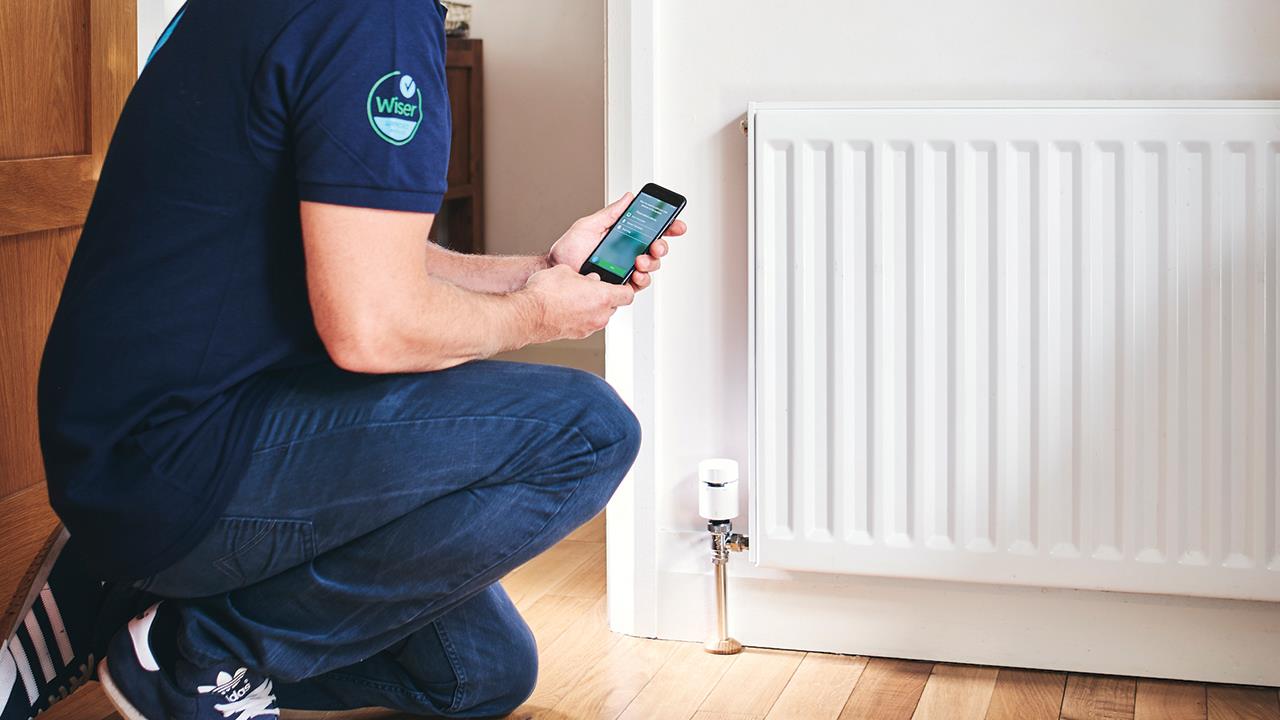

Over recent years, smart home devices have grown in popularity, with homeowners turning to this technology to better manage their busy lives. Not only do they help to save time, in many cases they can also help to save money, which is ideal for homeowners looking to keep energy bills down.
A recent Eurostat report found that in homes across Europe, space heating consumes the largest amount of energy per household; averaging 64.4%. With this in mind, heating controls are a great place to start when looking for ways to reduce outgoings.
Here are just some of the ways in which they can save homeowners money.
Using smart modes
While simply upgrading from an outdated thermostat and programmer to a more efficient smart heating control can, according to BEAMA, create savings of up to 6%, this can be enhanced even further through intuitive technology in the form of smart modes.
Smart modes, such as Wiser’s Eco Mode and Away Mode for example, can help homeowners achieve additional savings, by improving the performance of your boiler.
Not only will this benefit the eco-conscious homeowner, but it can provide peace of mind for those who are finding managing their homes efficiently and cost effectively a difficult feat.
How is this achieved? Taking Wiser’s products as an example, Eco Mode combines optimum stop and weather compensation to study the thermal properties of the home. Once this is achieved, the system will learn to switch the boiler off sooner than scheduled to reduce energy consumption, while still maintaining the set point.
Additionally, making sure that the heating is not running when the house is empty is another key way to make savings. Many smart controls now have functions, such as Away Mode, that can be quickly activated to turn off the heating when the occupants are not at home instead of having to adjust the regular schedule.
Wiser user data has shown that by using smart modes such as these, homeowners can typically reduce their energy usage by an average of 16%.
Setting up zones
Research from BEAMA also found that upgrading from basic heating controls to a multi-zone system can offer savings of up to 19% on energy bills.
As indicated by the name, multi-zone heating allows homeowners to split their home into zones – usually individual rooms; customising the temperature in each zone according to need.
Not only does this reduce energy bills, it also improves comfort according to the requirements of each member of the household.
Furthermore, individually adjusting the temperature of separate rooms can generally be done at the click of a button, using mobile apps; meaning the option is easily accessible and hassle-free for homeowners.
Gathering useful insights
Smart heating controls and the apps that accompany them are handy for controlling the home’s heating output. However, the data insights they can provide a homeowner can prove a key factor in helping to drive down energy bills.
For example, the Wiser Home app includes the Insights feature, which shows a heat report for the home. This tool allows homeowners to track the internal and external temperatures, as well as view setpoints, to ultimately determine if their heating system is working in the right way or if it can be optimised further.
Additionally, some controls offer enhanced insights when integrated with a smart meter.
For example, Insights+ on Wiser provides easy to read visuals that empower the homeowner to make changes according to the data provided, including real-time breakdowns of energy use, personalised insight information, heating predictions, and spend tracking.
With this level of information, homeowners can save an additional 7%, by having the knowledge readily available that will help them make more informed choices about how they use their heating.
While it may seem expensive to make the initial purchase of smart controls, with combined savings of up to 30% achievable on the average energy bill, this should highlight to homeowners just how much of a valuable investment they can be for the long term.
If you'd like to keep up-to-date with the latest developments in the heating and plumbing industry, why not subscribe to our weekly newsletters? Just click the button below and you can ensure all the latest industry news and new product information lands in your inbox every week.